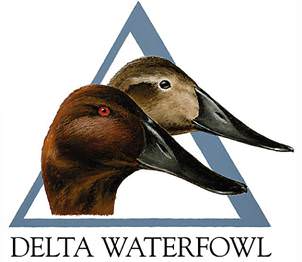Gulf Coast Oil Spill Duck Assessment Lacked Leadership & Coherent Planning


Bismarck, ND –-(Ammoland.com)- The federal assessment to measure the 2010 Gulf Coast oil spill’s impact on waterfowl lacked leadership, urgency and coherent planning.
“As a scientist, one of my great frustrations is that we have failed to use this disaster to learn how to better deal with any future oil spills,” says Louisiana State University’s Dr. Frank Rohwer, who was assigned by the U.S. Fish and Wildlife Service to conduct the waterfowl assessment.
Unfortunately, Dr. Rohwer says, we don’t know any more today than we did before the spill happened.
“Judging from the inefficiency I saw in the waterfowl arena,” he says, “I’d bet that assessment applies across the board.”
The good news, says Rohwer, is that the oil spill wasn’t the duck calamity some predicted. “From what we found during the assessment, it was the duck catastrophe that didn’t happen,” he says, “but next time we might not be so lucky.”
A professor at LSU’s School of Renewable Natural Resources since 1991, Dr. Rohwer, who doubles as Delta Waterfowl’s scientific director, was assigned to conduct the assessment as part of the Natural Resource Damage Assessment Program. The results will be used to determine BP’s liability for losses of migratory birds and other water birds.
Beginning in late January, Rohwer led a team of student-researchers who followed “transects” in five designated sites along the Gulf Coast, a major wintering area for millions of ducks, geese and other migratory birds.
“We only recovered a handful of confirmed oiled birds,” says Rohwer. “The upshot is that we got lucky.”
Rohwer said he had high pre-assessment expectations because the “roster of advisors” had some very smart duck professionals on it. However, in less than a month, the planning process got bogged down in bureaucratic inefficiency and ill-conceived staffing decisions.
“It was six months after the spill started before we even had a draft plan for how to assess oil impacts—that was a month after the well was capped, a month after early migrants made it to Louisiana, and several months after oil came inshore and could have impacted our resident mottled ducks,” Rohwer said. “There was another four-month delay before we got crews in the field in January to begin the actual assessment of the oil’s impacts.”
Rohwer says future spill assessments could be dramatically improved by “consistent leadership” and utilizing professionals who “understand waterfowl, waterfowl biology and coastal ecosystems.”
“That just didn’t happen this time around,” he said. “And that made getting an assessment plan written and approved very, very difficult.”
For example, the lead USFWS official for the Waterfowl Technical Working Group was appointed for only two weeks or less, and not one had any knowledge or professional experience with migratory waterfowl or Gulf Coast ecosystems.
“The system of rotating waterfowl officials was completely and totally inefficient,” Rohwer said.
“There’s simply too much to learn. After a week a new person would get up to speed, then they’d be out the door. Totally efficient system.
“The U.S. Fish and Wildlife Service employs hundreds of waterfowl professionals, but none who were appointed as leaders for the assessment were experts in the field,” added Rohwer. “Instead, they came from the permitting and regulatory side of the agency. That just doesn’t make any sense.”
For future major Gulf Coast oil spills, Rohwer recommends “hiring one person on contract” to manage the entire waterfowl assessment.
“It’s so important to get plans written and approved quickly, because delays make it extremely difficult to accurately determine waterfowl mortality and other impacts,” he said. “A contract person who understands waterfowl and the Gulf Coast could assemble a team quickly, and get a plan approved quickly. To make this process work more efficiently and to ensure the best possible research, you absolutely have to have consistent leadership. The system of rotating leaders simply doesn’t work.”
Future compensation from BP, Rohwer said, is unknown. But for future spills, a more efficient assessment process will help more accurately determine liability.
“I think BP benefitted from the lack of leadership in this process,” he said. “Hopefully one thing we take from this is that we have to have a faster response so we can more accurately assess damages. We need to mobilize quickly.”
About:
Delta Waterfowl provides knowledge, leaders and science-based solutions that efficiently conserve waterfowl and secure the future for waterfowl hunting. Visit: www.deltawaterfowl.org
